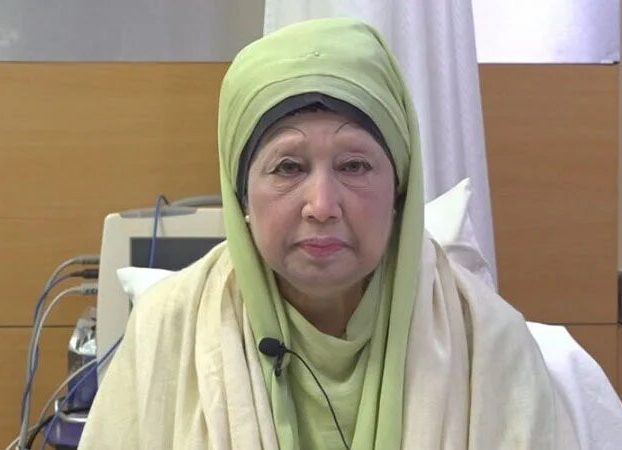
Eminent economist and Chairman of Center for Policy Dialogue (CPD) Professor Rehman Sobhan said, drama is going on in the banking sector. Loans are granted through kinship or ruling party favors, which later default. There was once a law that debtors could not vote in national elections. Later, the law was changed to allow participation in elections with down payment. If selected, the defaulters do not have to repay the loan.
Professor Rehman Sobhan made such an observation about the banking sector at the unveiling ceremony of the book ‘Is the Bangladesh Paradox Sustainable?’ Non-governmental research organization South Asian Network on Economic Modeling (SANEM) organized the event at BRAC Center in the capital. Prime Minister’s economic adviser. Mosiur Rahman was the chief guest.
Professor Rehman Sobhan also said that government institutions like Anti-Corruption Commission, Bangladesh Bank or National Board of Revenue have failed to provide proper services to the people. Party identity is considered in service delivery rather than non-discriminatory institutional services for all. On the one hand, the lack of institutional capacity, on the other hand, these institutions are not able to work properly due to the influence of the ruling political party. The situation has reached such a level that people no longer trust these institutions. He said that why foreign investment is not coming to the country whose GDP growth is above 6 percent, it is necessary to look into it.
Regarding the criticism of various speakers regarding corruption, defaulted loans, institutional weakness and lack of good governance, Dr. Mosiur Rahman said that the government is working to increase the capacity of government institutions. But not all reforms are possible overnight. He admitted that although the number of defaulters has decreased compared to earlier, the amount of defaulted loans has increased, which has created an uncomfortable situation in the banking sector. Due to this, private sector entrepreneurs do not get enough credit for industrialization. In response to the discussion of making NBR autonomous, the advisor said, I do not think that this will solve all the problems. Because, even after being autonomous, political influence remains.
Dhaka University economics professor MM Akash said, there has been no institutional development in the country, despite this there has been growth – this may be a paradox. But how permanent is this development? If institutional reforms and development are not possible, the economy will collapse at some point. It is a matter of understanding who will benefit from reforms and who is benefiting now due to lack of reforms. Reforms are not possible due to influential politicians, corrupt bureaucrats and dishonest business circles. Because, this cycle is stronger than the side power of reform. Who is responsible for financial sector scandals, where the wealth is going – everyone knows. Still no action.
Professor of Ulster University in the United Kingdom. SR Osmani said that usually there is no development without good governance. But it has become possible in Bangladesh. He said, just as there are government institutional weaknesses, there are also some good examples. But these issues are not discussed. Of course, both effective and ineffective institutions must be dealt with simultaneously.
The book ‘Is the Bangladesh Paradox Sustainable?’ has been written by some teachers including Saima Haque Bidisha, Professor of Economics of Dhaka University. Edited jointly by Executive Director of Sanem and Dhaka University Economics Professor Salim Raihan, Dr. Francois Bourgogneon and Dr. Salam Omar. Dr. highlighting various aspects of the book. Salim Raihan said, the first chapter of the book discusses the institutional framework of Bangladesh, survey of participants in primary education, export diversification, banking sector and institutional challenges in land administration.
He said that the things that have contributed to the development of Bangladesh so far, will not be able to contribute to the next stage of development. Such development is not sustainable. He said as the reason, the tax-GDP ratio is very low, the government has financial crisis for development. Moreover, there is a strong anti-reform coalition, which prevents breaking the cycle of corruption.
Chairman of the Policy Research Institute Dr. participated in the discussion among others. Zayedi Sattar, Dr. M Hasan, Dr. Saima Haque, Dr. Manjur Hossain, Dr. Kazi Maruful Islam and others.

 Reporter Name
Reporter Name 


















